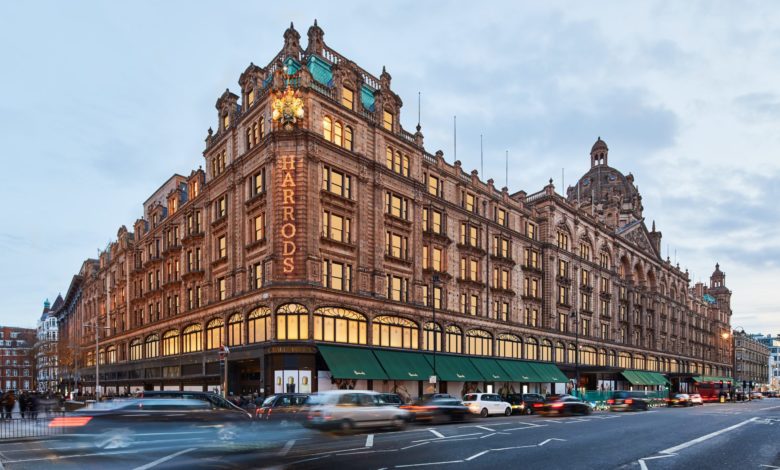Are we set for a winter of strike action in the Retail industry?
With energy bills set to skyrocket to unprecedented levels, concerns about how the public is going to survive the winter have been contrasted with rising profits from oil and gas companies. We speak to Andy Prendergast, general secretary of GMB Union, about whether strike action is inevitable?

Register to get 1 free article
Reveal the article below by registering for our email newsletter.
Want unlimited access? View Plans
Already have an account? Sign in
As the RMT strike makes waves across the UK, the incoming cost-of-living-crisis has come into sharp focus. With energy bills set to skyrocket to unprecedented levels, concerns about how the public is going to survive the winter have been contrasted with rising profits from oil and gas companies.
With coordinated strikes called for by Unions, and even fears of a general strike across the UK, the Country has reached an impasse. The retail sector is one of a number of industries set to be affected by the stand-off, with Amazon and Harrods among what is potentially the start of a series of strike actions across the sector. We spoke to Andy Prendegast, general secretary of GMB Union, which has over 500,000 members across the UK, about what the future looks like in the retail sector, and how it could be resolved.
Crossroads
As Prendergast notes, the retail sector is sitting “at a crossroads”- taking one specific sub-sector of the retail industry, supermarkets, there have been measures taken in advance of the oncoming crisis in an effort to prevent the sort of strike action being seen. Pay rises and advances in living wages have already been implemented. The problem is, the crisis we are facing is so acute that more action is needed in order to ensure the simple act of survival for many workers, with levels of inflation predicted to rise up 18%, to the highest in over 50 years. Prendergast says that despite supermarkets “getting ahead of the game”, GMB is already starting to see pressure from its members struggling to pay the bills.
“The wildcat strikes we’ve seen at Amazon and Harrods have occurred, quite simply, because people are struggling,” Prendergast says. “We’re going to be in a situation where workers have a choice between heating and eating, and that’s not sustainable.”
Agency Workers
One key feature which could change the dynamic of strike negotiations is a recent legislative change from the Government which now allows agency workers to provide cover for striking employees. After 150 staff from Harrods balloted for strike action over what they called a “pay cut disguised as a rise”, the department store gave the following notice to key staff grades, threatening to use new laws to break possible strikes.
It read: “A letter sent 8 August to staff working in store services, engineering, maintenance and security, states: “Recent legislative changes relating to the Conduct of Employment Agencies and Employment Business Regulations now allows agencies to provide temporary workers to perform duties normally performed by a worker who is on strike. We are therefore no longer restricted from engaging temporary workers should any industrial action take place now or in the future.”
However, Prendergast is sceptical about how effective these measures will be, likening them to scare tactics, and fearful of the harmful effects of the Government legislature. He argues the threat is not something that has the backing of agencies, referring to companies such as Manpower who have already said it wouldn’t be putting its staff out across picket lines.
On a practical level, Prendergast said that as an attempt to resolve the dispute “the ability to hire agency workers is largely worthless”. Along with an inherent lack of numbers to fill striking workers roles, he points to putting extra strain and time on the rest of the staff to provide training, and the impact a significant drop in service quality could have on the Harrods brand as just the start of its problems.
Is there any way to avoid strike action?
Regarding strike disputes, Prendergast warns that GMB predicts that “employers are going to be increasingly heavy handed with how they deal with it”, but argues that the Union finds that approach “often counterproductive, and that’s going to lead to a greater response from the workforce than would otherwise be the case.”
Such is the acute nature of the crisis, and the extent to the issues facing employees without the ability to pay bills or groceries, any attempt at avoiding strike action without giving a pay rise is likely to be not only fruitless, but actively driving the country to something more severe. Whether Prendergast believes those at the top of the retail industry are prepared to do so remains to be seen.
He notes, on striking, that “It’s always as a last resort, but it’s an important step that workers have the ability to take. Making it harder, as successive Conservative governments have done, to the point where we have some of the most stringent rules in terms of lawful industrial action in the western world, is going to be massively problematic. And ultimately, it’s going to probably lead to more wild action, which we’ve seen, and which is harder to plan for and ultimately more disruptive.”







